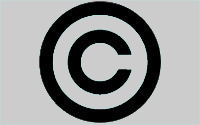Digital Rights Groups Slam Associated Press
- by Wendy Davis @wendyndavis, January 21, 2013
 A lawsuit by The Associated Press against
paid clipping service Meltwater has drawn the attention of digital rights advocates, who are siding against the wire service in a new friend-of-the-court brief.
A lawsuit by The Associated Press against
paid clipping service Meltwater has drawn the attention of digital rights advocates, who are siding against the wire service in a new friend-of-the-court brief.
The AP sued Meltwater last year, alleging that the clipping service infringes copyright by copying news stories and "selling that content to its subscribers for a profit." But Meltwater counters that it merely offers a search engine that allows users to "discover, monitor, research, and analyze information made freely available on news Websites across the Internet."
Now Public Knowledge and the Electronic Frontier Foundation argue in a friend-of-the-court brief that Meltwater, like other search engines or aggregators, is protected by fair use principles when displaying fragments of news articles. The groups add that a ruling against Meltwater on that point could set a troubling precedent by curtailing "the essential role fair use plays in facilitating online innovation and expression."
Last month, Meltwater filed court papers seeking a ruling in its favor on the key issue of fair use. The company says that it has the right to display portions of news stories, arguing that its use of the articles is "transformative," which is one of the factors that courts evaluate when considering fair use issues.
Meltwater argues that it posts snippets "for very different purposes" than the AP. "The original purpose of AP's articles ... was to report the news," Meltwater argues. "Meltwater's search results are designed to inform its users where news articles that may be of interest to them were published and to help users find those items within the Internet's vast expanse."
But the AP counters that Meltwater's use of the news stories isn't transformative because it doesn't add any commentary or otherwise discuss the pieces. "What Meltwater systematically delivers is row upon row of naked verbatim excerpts from articles with links," the AP argues. "Meltwater does not even curate its article excerpts or present them in any configuration that reflects independent 'intellectual labor and judgment.' "
Digital rights advocates take issue with the AP's theory.
The Electronic Frontier Foundation and Public Knowledge say in new court papers that fair use principles don't require search engines, bloggers or others to add new content. They say that adopting the AP's stance on fair use could restrict online platforms "that allow users to find, organize and share public information, services that depend on making intermediate copies, and even personal consumer uses such as time-shifting."
Public Knowledge and the EFF add that the AP's legal theory could "undermine the sharing of news snippets by private citizens who simply wish to prompt discussion."


